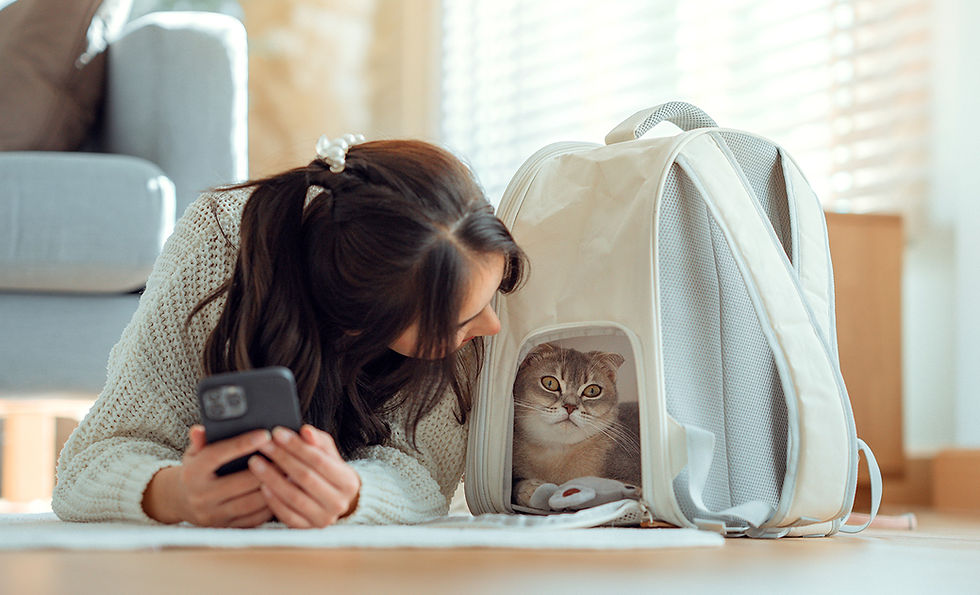- Dr. Monica Sterk
- Feb 28
- 3 min read
Updated: Apr 7
Plants make a home feel welcoming, but the dynamic duo of pets and plants in the same space often leads to unexpected chaos. The dog sneaks a little leafy snack. The cat thinks that your floor plant makes a great potted potty. So, you may be asking, can pets and plants really cohabitate peaceably? The answer is a cautious yes. Messes are a nuisance, but plant toxicity is a dire concern.
You have a responsibility to your furry friends to surround them with the safest plants. Here, we’ll let you know which ones can give you peace of mind, which to stay away from, and what symptoms to look out for if you suspect your pet ate a toxic plant. We can’t guarantee they won’t dig into the soil or knock one over, but we can help you keep toxic plants out of your home.
PET OWNERS SHOULD PLAY IT SAFE: BUY NON-TOXIC PLANTS
No need to keep your place free of greenery—just fill it with flowers and houseplants that are safe to have around your pet. Here are just a few:
Herbs – common herbs that are harmless to your pet are basil, cilantro, parsley, and rosemary, but keep chives, marajuana, mint, and oregano away from your four-legged friends.
Orchids – pretty and pet friendly!
Ponytail palms – easy maintenance, though pets may playfully paw at this plant’s long, flowing leaves.
Spider plants – popular and safe, even if your curious pet takes a little nibble.
Succulents – choose wisely; some are safe, like air plants, echeveria, and Haworthia. Beware of sharp or spiked leaves that can be a choking hazard.
Venus fly traps – despite their reputation, they’re safe around pets, unless of course if your pet is indeed a fly.
TOXIC OR DANGEROUS PLANTS TO PETS
Whether indoors or outside, plants can be dangerous and even fatal to your pet. Here are a few toxic types to keep them away from:
Azaleas
Chrysanthemums
Daffodils
Hydrangeas
Lilies
Lily of the Valley
Sago palm
Tulips
SIGNS OF PLANT POISONING IN PETS
There are many reasons your pet may be vomiting or have diarrhea, and ingesting toxic leaves is one of them. A staggering gait (yep, walking like they are drunk), falling over, seizures, or any neurological type of signs can definitely warrant a visit to an emergency veterinarian.
WHAT YOU CAN EXPECT AT THE EMERGENCY VET
When you come to VEG or any veterinary ER, let them know the type of plant or flower your pet may have gotten into. At VEG, you stay with your pet, so you can expect to see every step of care. For plant poisonings, we often induce vomiting if it’s early enough (before signs have started).
Pet owners can expect hospitalization with fluids, and we’ll monitor your pet and provide symptom-specific medications, depending on the toxin. If your pet ate a very serious toxin, we may need to perform a gastric lavage (stomach pumping). This is a big procedure that does have to be performed within the right time period. It does carry risks, and our veterinarians will be open and honest with you the entire time.




